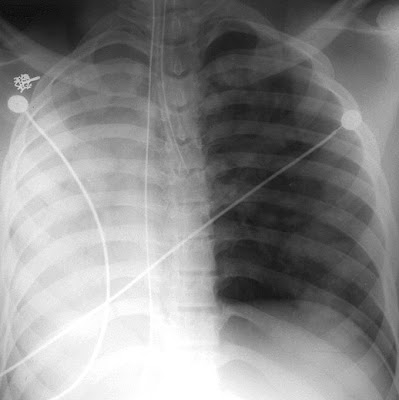There are many causes for collapse, the most frequent are listed below:
* The commonest cause is a proximal stenosing bronchogenic carcinoma, which occludes a bronchus. Patients are middle aged or elderly, and almost always smokers.
* In a young adult or older child asthma is by far the commonest cause. Collapse occurs secondary to mucous plugging of the major airways, and responds to physiotherapy.
* In an infant consider an inhaled foreign body, such as a peanut.
* Retention of secretions is a frequent cause of post operative collapse.
* In ventilated patients, including neonates, collapse may occur if the endotracheal tube is inserted too far, entering one main bronchus and occluding the other as shown below:
Complete collapse of the right lung in this case was caused by an endotracheal tube that was advanced too far and entered the left mainstem bronchus. The heart is not seen as the mediastinum is shifted to the right. There is overinflation of the left lung, also contributing to the mediastinal shift.


